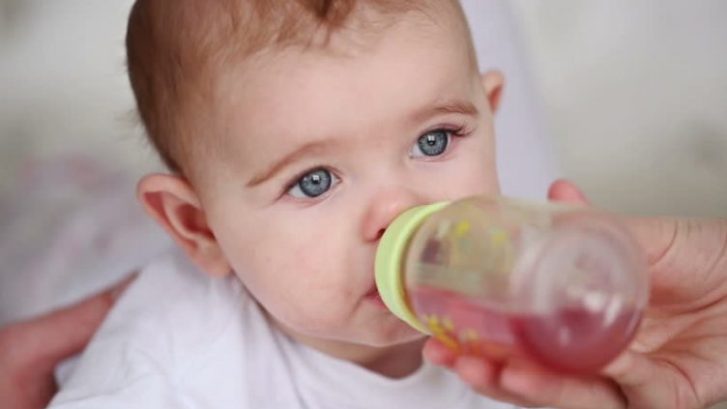Fruit Juice Now Off Limits For Infants
What could be healthier than fruit juice? If it’s pure fruit juice, and not sugared water with a bit of juice added, it’s perfect for children, right? Not anymore.
The American Academy of Pediatrics (AAP) recently issued a recommendation warning against giving fruit juice of any kind in any amount to babies before the age of one.
The recommendation was published in the June issue of Pediatrics, and modified a previous recommendation that juice should be restricted to babies older than six months.
“Fruit juice offers no nutritional benefit to children under age 1 and should not be included in their diet,” said the Pediatrics article.
“Parents may perceive fruit juice as healthy, but it is not a good substitute for fresh fruit and just packs in more sugar and calories,” said Melvin B. Heyman, MD, FAAP, co-author of the statement. “Small amounts in moderation are fine for older kids, but are absolutely unnecessary for children under [age] 1.”
The new recommendations say that it’s fine to serve 100% fresh or reconstituted fruit juice to children older than one year, but that it should be part of a well-balanced diet. If a product label calls it a fruit “drink,” “beverage,” or “cocktail,” that’s the tip-off that it’s not pure fruit juice, and contains other unnecessary—and perhaps even harmful—substances, like sugar or sugar substitutes.
Whole fruit is “less of a pure sugar intake,” said Dr. Steven Abrams, one of the lead authors of the new report and chairman of pediatrics at the Dell Medical School at the University of Texas at Austin. “We want kids to learn how to eat fresh foods. If you assume fruit juice is equal to fruit, then you’re not getting that message,” he told The New York Times.
An additional caution about fruit juice was also included in the recommendations: Too much fruit juice can lead to a failure to thrive.
“Failure-to-thrive kids often drink a lot of juice and may be consuming so much that they’re not willing to fill up on food, so they’re not getting enough calories,” Kristi King, a clinical dietitian at Texas Children’s Hospital, told CBS News. She also raised a concern about the possibility of obesity in children who are drinking excess fruit juice and not burning off the extra calories.
Your primary care doctors at MD 2.0 in Jupiter, Florida, concur with the following AAP recommendations for pediatric consumption of fruit juice. If you have any questions or concerns in this area, be sure to contact us.
- Intake of juice should be limited to, at most, 4 ounces daily for toddlers age 1-3. For children age 4-6, fruit juice should be restricted to 4 to 6 ounces daily; and for children ages 7-18, juice intake should be limited to 8 ounces or 1 cup of the recommended 2 to 2 ½ cups of fruit servings per day.
- Toddlers should not be given juice from bottles or easily transportable “sippy cups” that allow them to consume juice easily throughout the day. The excessive exposure of the teeth to carbohydrates can lead to tooth decay, as well. Toddlers should not be given juice at bedtime.
- Children should be encouraged to eat whole fruits and be educated about the benefits of the fruit as compared with juice, which lacks dietary fiber and may contribute to excessive weight gain.
- Human milk or infant formula is sufficient for infants, and low-fat/nonfat milk and water are sufficient for older children.
- Consumption of unpasteurized juice products should be strongly discouraged for children of all ages.
- Children who take specific forms of medication should not be given grapefruit juice, which can interfere with the medication’s effectiveness. In addition, fruit juice is not appropriate in the treatment of dehydration or management of diarrhea.

